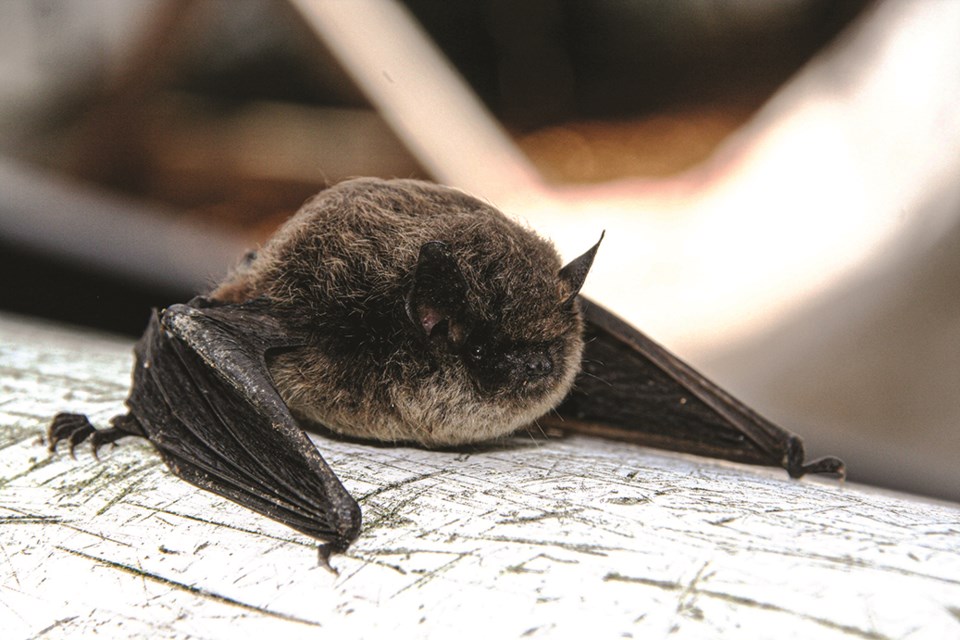Local bats are at risk, and the Sunshine Coast Wildlife Project is asking for your help to protect them. White-Nose Syndrome (WNS), an introduced disease, has killed millions of bats across North America since it was first discovered in New York in 2006. While the disease-causing fungus is harmless to humans and pets, it is deadly to bats. The fungus attacks bats during their winter hibernation, appearing on their wings and faces. As the bats wake to clean the fungus from their skin, they deplete essential energy reserves, often leading to death from starvation. Although there is currently no cure for White-Nose Syndrome, several promising treatment options are being explored to help mitigate the impacts of this wildlife health crisis.
Thankfully, no bats in B.C. have tested positive for WNS yet, but the fungus was detected in Grand Forks in 2022, and the disease continues to spread in Alberta and Washington State. Early detection is key to tracking the spread of WNS. Sunshine Coast residents can help by reporting winter bat sightings, roosts, and any sick or dead bats by emailing [email protected] or calling 604-989-1007. Dead bats can be collected and tested for WNS, and reports may help identify areas with unusual activity.
Some healthy bats may also be active in winter, and some hibernate near humans in woodpiles, sheds, or under house trim. These sleeping bats should be left undisturbed — keep your distance, take a photo, and report the sighting. If you must move a bat, visit www.bcbats.ca for advice. Remember to never touch a bat with bare hands. If you or your pet has had direct contact with a bat, contact your public health authority or veterinarian for further information regarding the risk of rabies.
The Sunshine Coast Wildlife Project, in partnership with the BC Community Bat Program and the BC Ministry of Water, Land, and Resource Stewardship, works to facilitate bat stewardship and community science. They gratefully acknowledge funding support from the Habitat Conservation Trust Foundation, Forest Enhancement Society of BC, Habitat Stewardship Program, Gencon Foundation, Fish and Wildlife Compensation Program, and the Province of BC.



